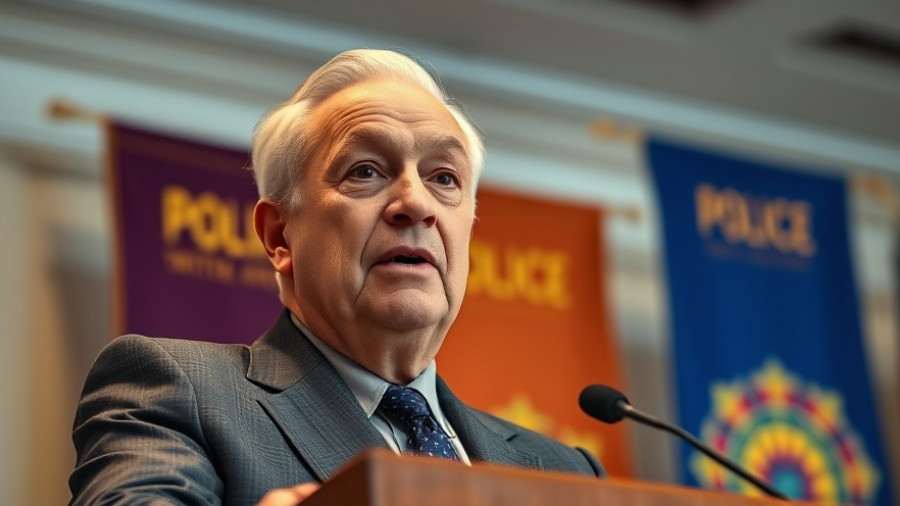
Understanding the Role of the Political Killings Task Team in South Africa
The recent proceedings within the South African Parliament surrounding Deputy Police Minister Cassel Mathale's testimony about the KZN Political Killings Task Team (PKTT) have illuminated deeper concerns within the nation. Following allegations of corruption and interference in the criminal justice system, Mathale's engagement with Parliament has emphasized the complexities of managing law enforcement in a politically charged environment.
The Disbanding of the PKTT: Implications and Controversies
Mathale’s upcoming appearance comes on the heels of a tumultuous debate concerning the disbanding of the PKTT. The disbandment decision, defended by Police Minister Senzo Mchunu, raised eyebrows as it appeared to circumvent broader political discussions around violence, particularly in KwaZulu-Natal, a province known for its political tensions. Mchunu’s assertion, that he acted with President Cyril Ramaphosa’s assent, adds another layer of complexity to the political dynamics at play.
Political Ramifications Amidst Allegations of Corruption
As the inquiry unfolds, we see significant scrutiny directed at the relationships between key political figures, namely the Minister and the controversial figure Brown Mogotsi. Mchunu's insistence on his limited acquaintance with Mogotsi has been met with skepticism, especially as the task force's disbandment has been framed within a narrative of corruption and political self-preservation. The varied testimonies provide insight into the intricate web of connections that often influence decisions within the South African justice system.
Public Trust and the Future of Crime Prevention
The ongoing discussions regarding the PKTT are tied closely to public perception of the government’s commitment to crime prevention and justice reform. Activists and opposition parties are closely monitoring the situation as they argue for more transparency and accountability amid fears of escalating violence. The opposition, including leaders like Julius Malema from the EFF and John Steenhuisen of the DA, have leveraged these hearings to critique governance issues, thereby spotlighting broader societal concerns such as service delivery and economic policy.
The Broader Context of Political Violence in South Africa
Political violence has a long and tumultuous history in South Africa, intertwined with the legacies of apartheid. The recent focus on KZN, where many politically motivated killings have occurred, reflects ongoing struggles within the political realm. Mathale’s insights may reveal gaps in the current approaches to addressing these systemic issues, which could contribute to the narrative leading up to the 2024 general elections.
The Role of Parliamentary Oversight in Accountability
Parliament's role in scrutinizing these developments is critical. Discussions surrounding legislative oversight mechanisms and potential reforms within the South African Police Service are becoming increasingly relevant. As the ad hoc committee continues to unravel the intertwined narratives of the political and criminal justice systems, the outcomes may set important precedents for police reform, judicial independence, and executive accountability.
What Lies Ahead: A Call for Democratic Engagement
The fate of the Political Killings Task Team and the broader implications for crime prevention and governance in South Africa remain uncertain. The unfolding inquiry offers an opportunity for professionals and citizens alike to engage critically with the political landscape. As a nation, the importance of upholding democratic principles and ensuring justice cannot be overstated—especially as the country braces for pivotal elections that will shape its future.
The drive for transparency and accountability in governance is not merely a matter for politicians but one that impacts all South Africans. Engaging in discourse around these issues could ultimately empower communities and galvanize them into action to advocate for reforms that prioritize safety and justice.
As the country moves forward, it is increasingly crucial for citizens to stay informed and participate actively in discussions influencing their rights and the future of their communities. Therefore, take this opportunity to engage with your local representatives and advocate for the changes that matter to you.
 Add Row
Add Row  Add
Add 




Write A Comment